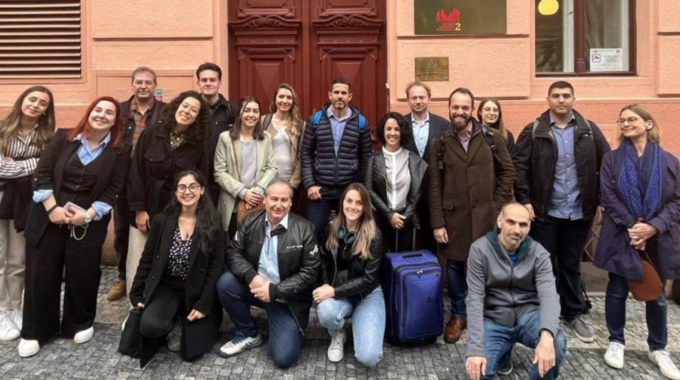
How informal caregivers’ life and care situations changed during the corona-pandemic in Germany
Background
The Covid-19 pandemic represents a challenge for informal caregivers, who in many European countries are the major pillar of long-term care. It is the case in Germany. In order to explore how they experience caregiving during the “first wave” of the Covid-19 pandemic in spring 2020, what challenges they faced and what support they would like to receive from politicians, employers, and other stakeholders, we conducted a survey among informal caregivers caring at home.
A research team from the University of Bremen, with support by the German caregiver’s association wir pflegen, designed and conducted the study. Representatives of wir pflegen were involved in drawing up the survey questionnaire and in the recruitment of study participants. This contributed substantially towards a better-tailored questionnaire reflecting the life and care situations of informal caregivers. More than 1,000 German informal caregivers of working age (up to 67 years) filled in an online survey. Participants were questioned for instance about the use of formal services, reconciliation of work and care, changes in the burden of care and feelings of loneliness during the pandemic. The data were collected in June and August 2020, so they represent a time when home-based care settings had already been significantly hit by the coronavirus pandemic for around 3-4 months. In the subsequent paragraphs, I will briefly describe some of the findings.
Key results
- Formal services
There has been a strong decrease in the use of practically all formal services, especially in the case of respite care (-35%), support groups (-31%), home visiting services (-28%) and counselling by mobile care services (-25%). The reasons for the decline can be attributed to both, the fact that service providers had to stop delivering services, as well as that respondents no longer wanted to use services due to uncertainties associated with the coronavirus pandemic.
- Reconciliation of work and care
Generally, for more than half (57%) of the family caregivers the daily time spent on providing care and support has increased during the pandemic and 71% of respondents report that they have experienced more problems in terms of reconciling work and care since the start of the coronavirus pandemic.
- Health status and burden of care
Slightly more than half of the respondents (52%) report that that their health situation worsened (11% considerably; 41% somewhat) during the pandemic. We used the COPE instrument to determine the burden of care for informal caregivers. Results show that the burden generally increased across all dimensions, but especially regarding feelings of being trapped in the caregiving role, in terms of overall efforts and concerning negative effects on the relationships with friends. Despite these negative developments, our results suggest that many respondents still see caregiving as a worthwhile task, even in corona times.
- Feelings of loneliness
The social consequences of the physical distancing measures taken to protect against infections are also visible here: whereas one third of respondents could be classified as “feeling lonely” before the pandemic (33%), this share increased to slightly more than half with the coronavirus pandemic (51.4%). The de Jong Gierveld loneliness scale (sum score) was used to measure feelings of loneliness.
Conclusion
The results of the study indicate that the living and care situations for many informal caregivers of working age in Germany has become more difficult and stressful during the coronavirus-pandemic. Both politics and society are called on to explicitly acknowledge the work done by caregivers during the coronavirus pandemic and the challenges they face, and to take appropriate actions to relieve them. We also asked the respondents which actions might be particularly helpful to them. Among others, they advocate for a release from work with continued salary, flexible working hours, provision of corona protection material as well as a personal care budget at free disposal.
Author
Henrik Wiegelmann (University of Bremen / Member of wir pflegen e.V.)
Contact: hwiegelmann@uni-bremen.de
Research team
Heinz Rothgang (U. of Bremen), Karin Wolf-Ostermann (U. of Bremen), Dominik Domhoff (U. of Bremen), Franziska Heinze, (U. of Bremen), Moritz Heß (U. of Applied Sciences Niederrhein), Thomas Kalwitzki (U. of Bremen, Katrin Ratz (U. of Bremen), Annika Schmidt (U. of Bremen), Kathrin Seibert, (U. of Bremen), Claudia Stolle (City University of Applied Sciences Bremen), Henrik Wiegelmann (U. of Bremen)
The research teams thanks wir pflegen for the support given. More information about wir pflegen: https://www.wir-pflegen.net/
This article is just a short glimpse into the results of our study. More details (in German language):
https://www.socium.uni-bremen.de/uploads/Schnellbericht_Befragung_pflegender_Angehoriger_-_print.pdf





